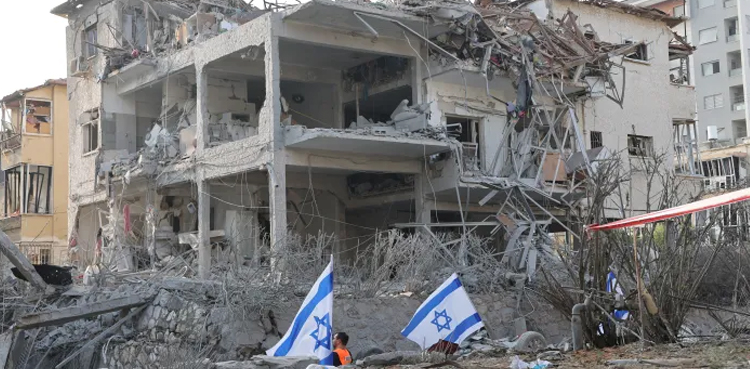Iran launched a powerful missile strike targeting main Israeli cities, including Tel Aviv and Haifa, exposing critical weaknesses in Israel’s much hyped defence systems, Lebanese newspaper, Al-Akhbar, reported.
According to Mehr News Agency, Lebanese newspapers reported that the Iranian missile strike overcame Israeli interceptive capacity, with many missiles hitting their intended targets with extraordinary exactness.
At least 35 missiles were launched as part of Iran’s “Sadiq Promise 3” operation, numerous of which struck military and governmental installations.
Israeli media, including Yedioth Ahronoth, confirmed that sirens in Haifa could not activate, and one Israeli interceptor missile couldn’t be fired properly, which crashed into a residential building. The Israeli defence failure has prompted an internal review by the IDF.
According to the Lebanese newspapers “Al Akhbar”, Ness Ziona had the most significant hit, where a direct strike destroyed a high-security biological research facility, according to reports. The centre, believed to be involved in sensitive chemical and biological weapons research, suffered extensive fire damage.
While Israeli officials have forced strict media censorship, independent sources suggest the destruction was severe.
Haifa’s mayor described the low casualty count as “miraculous,” given the scale of destruction. However, the city’s infrastructure, including power and water systems, sustained heavy damage.
Read More: French president says US strikes on Iran not legal
Israeli military officials have acknowledged a significant leap in Iranian missile strike accuracy. According to Tasnim News, Iranian missiles now achieve a hit rate nearly three times higher than in previous operations. The deployment of the Kheibar Shekan missile, a stealthy, high-speed ballistic weapon, played a pivotal role in evading Israeli defences.
Israeli sources admitted that at least 18 out of 30 ballistic missiles avoided interception during the latest barrage.
The Israeli defence failure has raised alarms across the region. The United Nations Security Council convened an emergency session, while Russia and China called for de-escalation.
Meanwhile, Iran’s Foreign Minister met with President Putin in Moscow, signalling a tightening of strategic alliances.
The attack also targeted Ben Gurion Airport, disrupting air traffic and prompting the closure of schools and public gatherings.
As tensions continue to rise, the Iranian missile strike marks a turning point in the regional power dynamic, challenging long-held assumptions about Israel’s military invulnerability and Israeli defence failure.


Leave a Comment